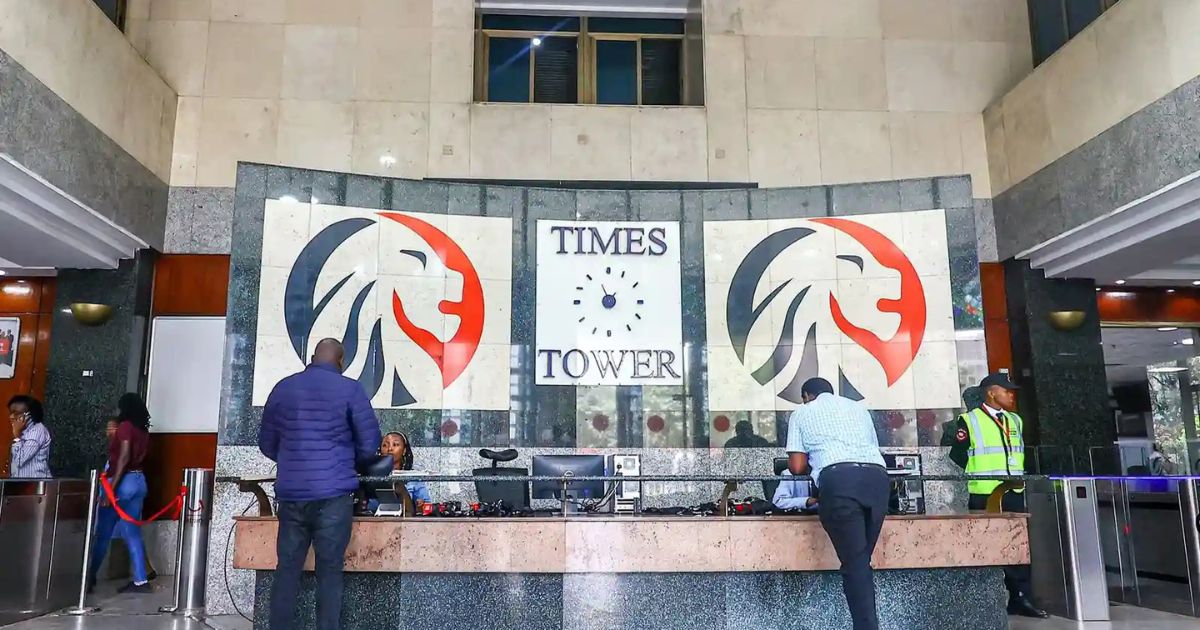- Money254 Money Weekly
- Posts
- Age Limit for All Imported Electronics, Ksh683B Gold Discovered in Kakamega
Age Limit for All Imported Electronics, Ksh683B Gold Discovered in Kakamega
The government to introduce a 12-year age limit on all imported electronics. A UK firm discovers Ksh683 billion gold in Kakamega. KRA to require all PIN holders to keep ETR receipts when filing returns. Skills gaps in Treasury and Parliament behind the public debt spiral. All these stories are in today’s Money Weekly Newsletter, but first, the age limit on imported electronics.

Hello and welcome to the Money Weekly Newsletter, where we are covering the proposed 12-year age limit for electronics.
But first, a word from Jackfruit Finance
Sponsored Content
Are you a school owner looking to expand, upgrade your facilities, or buy a school bus? Our partner, Jackfruit Finance, offers a financing solution designed exclusively for schools.
Access up to Ksh9 million in just 48 hours to grow your school. Whether it’s building new classrooms or acquiring essential assets, Jackfruit provides friendly terms and flexible repayments — not fixed monthly instalments.
Apply for the Jackfruit Project & Asset Loan today and take your school to the next level. Apply here
12-Year Limit on Imported Electronics
The government is seeking to tighten electronic import laws in an effort to prevent e-waste dumping in Kenya. Proposed regulations by the National Environment Management Authority (NEMA) aim to ban the importation of electronics older than 12 years, including TVs, refrigerators, smartphones, computers, and other household and industrial appliances.
According to NEMA, the ban will be critical in protecting Kenyans from toxic materials linked to cancer, respiratory diseases, and birth defects.
The proposals also target the growing influx of second-hand and near end-of-life electronics, much of which enters the country disguised as donations or cheap refurbished goods.
Under the proposed rules, electronics will be denied entry if they were manufactured more than 12 years ago or if they perform below 85 percent of their original specifications.
Catch Up Quick: Kenya imports 70 percent of its electronics, some of which are close to becoming obsolete, and the country has never had an age cap on imported electronics. Many old products come in under the guise of donations. This ban is modelled on Kenya’s vehicle sector, which restricts the importation of vehicles older than eight years.
Impact and Requirements: Importers will be required to submit manifests detailing the brand, model, serial number, manufacture date, and functionality certificates from KEBS-accredited labs. Once implemented, the ban is expected to lead to higher prices for electronics due to reduced supply of affordable options and more buyers being pushed toward newer, costlier products.
Penalties: KRA Customs and NEMA will enforce compliance at ports, airports, and border points. Violations could attract fines of up to Ksh10 million, imprisonment, or blacklisting.
Yes, But: Second-hand electronics will still be allowed under strict functionality testing, while local refurbishment centres will be permitted to extend product lifecycles and create jobs. Computers, laptops, and tablets will be allowed in if they have no physical damage and boot to the operating system within three minutes. Mobile phones and tablets must have intact screens and fully functional call, SMS, and data capabilities.
In Comparison: Nigeria prohibits the importation of electronics older than 15 years. Read more here.
Here is a quick recap of the top news stories on education for the week:
Shanta Gold Kenya Limited, a British multinational, has discovered more than 360 tonnes of gold worth an estimated Ksh680 billion at a gold field in Ikolomani, Kakamega County. The company projects it will mine 1,270,380 ounces (about 36 tonnes) of high-grade gold.
The timing appears favourable for Kenya, especially with global gold prices reaching a historic high in October 2025 when an ounce retailed at Ksh566,000 (USD 4,381). However, the planned mine will occupy 337 acres and is expected to displace about 800 households, raising concerns around compensation, resettlement, and long-term environmental impact.
Catch Up on More News
WEEKLY MONEY TIPS
MONEY254 #MONEYTOK
KRA Announces Shift in Verification of Tax Returns
The Kenya Revenue Authority is changing how tax returns are verified starting January 1st, 2026. Kenyans will need to keep their electronic tax receipts as KRA will cross-check declared income and expenses against digital records. This includes electronic tax invoices, withholding tax data, and import records.
The authority is also introducing an Automated Payment Plan to help taxpayers settle outstanding taxes in structured installments over six months. Eligible taxpayers must have a valid KRA PIN, be compliant on iTax, and submit an approved installment plan. Watch to learn how to keep your tax affairs in order and make the most of the new payment plan.
That’s a wrap for this week’s Money Weekly!
Remember that we can help you compare over 300 loans, savings accounts, current accounts, and more on our website if you’re thinking about your next product.
❤️ Share with a friend
Thanks for reading. If you liked this week’s Wallet Wellness email, we’d love for you to share it with a friend.
If this email was forwarded to you, you can subscribe here.



.jpg)

.jpg)
%20(1).jpg)


